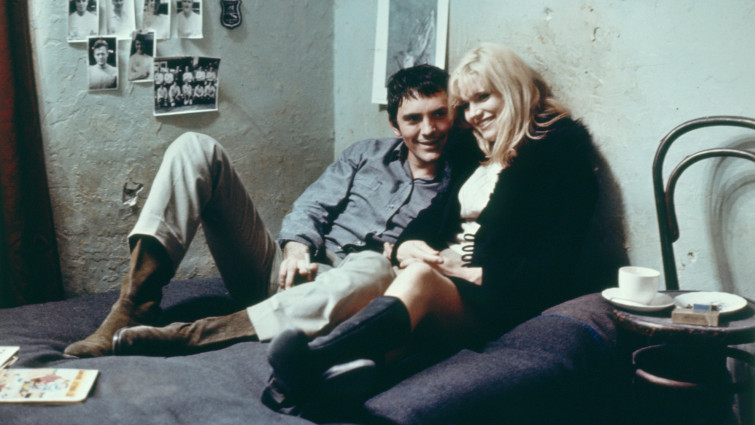

Member review

Poor Cow
Powerful film from British social realist director Ken Loach about a woman trapped in 1967 in a miserable life from which escape seems...
Certificate
Duration97 mins
Review by
-
 Rhianna, 18
Rhianna, 18 - 2 reviews
On parr with the Best British films out there. A must watch and my new favourite.
After watching this film I instantly ranked ‘Poor Cow’ up there with my all-time favourites - it was impossible not to. Timelessly significant and enthralling storytelling, I found it impossible to take my eyes off it beginning to end as the pace and premise of the film emit what Loach does best.
The narrative of Joy's character as a working-class Londoner in 1960’s Britain, where women had no real purpose in society than to serve traditionalism and male consumerism. Though this film sounds disheartening for women, it is not. Joy is liberated and good-spirited throughout, though her character is flawed, it only adds to the infamous gritty realism setting the style we know and love Ken Loach for today, in the film that marked his directorial debut in film.
The protagonist's characterisation is captivating, I found myself constantly changing my opinion on Joy as she inconsistently navigates motherhood as the wife of a prisoned thief. Though in the end I can’t help but respect her and also see little sparks of people I know in her as she wholeheartedly represents an authentic working-class woman of the time. What's more to love, is that she gains power and soars sexually liberated shamelessly throughout the film, controversial of the time to create a woman whose world did not associate love and sex in parallel, she defies even her own expectations. Though domestication and tradition is seen all around Joy, through her Aunt Emm striving daily to find someone to love her, and the cycle Loach represents through a young girl taking care of Johnny: an expression that young girls from that generation were seemingly only ever destined for domestic life, a societal outcry for the stereotype that as soon as a girl is legal she should be searching to settle.
Not to disregard the men in the film, Dave and Tommy somehow stand as total opposites with the audience, despite realistically being quite similar. What differs is that while Tommy is aggressive, Dave loves, and while Joys repeated choice of a criminal partner seems so normal for her, we too choose to look past the fact that they are principally bad people (Reflecting the encouragement of the film to foresee what appears). Cleverly, that part of the narrative is not dwelled upon, and the raw love depicted between her and Dave suffices; Joys happiness is enough for us.
I could talk about this film forever, and while not having mentioned the gripping style, narration and setting of the film, above all, I have to admit my favourite thing about this film is the name itself. Poor Cow. Whether the intention or not, my perception is this: The film humanises the overused and desensitised phrased response to the struggles of working-class women, as we see the life of, and the moments to which in narration and description the general common response would be that of the name: ‘Poor Cow’.